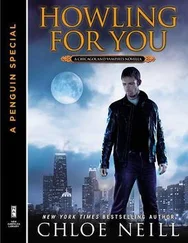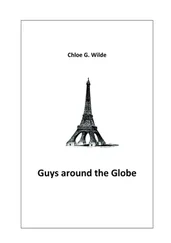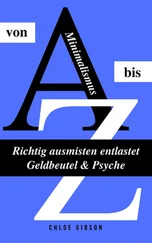Day two was no different. He went to see his GP, who said it would pass. Yet on day three, the ship felt heavier. By day four, Daniel was desperate. The only thing that helped, just a little, was to chew strong peppermint gum on the side where it most hurt, behind his right eye. Along with this and extravagant amounts of aspirin and ibuprofen, he had tried every remedy he could think of: tiger balm and eucalyptus oil, hot washcloths and bags of ice, pressure showers and deep-tissue massage, a Chinese acupuncturist, a German reiki man. He wore sunglasses, avoided screens, monitors and the printed word. He wrapped a kerchief tightly around his head, otherwise it might split open. He tried whatever remedy people happened to put forward, from his local newsagent to the woman at Boots. Everyone had an idea. None of them worked.
At home, he felt outside time. Despite the painful fortress that imprisoned him, he refused to stay immobile. His search for a cure, a wise word from somewhere, wasn’t going to happen while he lay in bed, so at least once a day he put on his sunglasses and went hunting for a solution.
Soon his extended family was discussing his condition. His cousin Lucy recommended a headache doctor she had once seen in Harley Street. Daniel went to this doctor and ended up parting with £135 for the man to tap his skull, shine lights in his eyes and wade through three pages of questions. He was sent home with a jar of ointment and a box of beta blockers. He rubbed the ointment into his temples, took the beta blockers. Nothing.
Day six, he ran into a friend on the street, Paul, who worked at the gift shop at the British Museum. It was he who told Daniel about the Hungarian hypnotist somewhere off Marylebone High Street who had cured his wife of chronic back pain. This man was an expert in pain, he’d said, knew how to make it vanish. On the spot, Paul called his wife and got the Hungarian’s number. Daniel was on the next bus to Marylebone.
The Hungarian had thick white hair and blue eyes that seemed to hold half the sky. He wore rings, four fluted bands of silver, two on each hand, and wasn’t particularly tall. Yet he carried himself proudly, Daniel said, as if he were taller.
‘What is problem?’ he asked.
Daniel removed his sunglasses and pointed to the right side of his head, describing the pain that wouldn’t go away.
‘No problem,’ the hypnotist replied.
He then sat down and motioned to a stool across from him. Once Daniel was seated, he was instructed to look into the man’s eyes, into his eyes and nowhere else. That was easy. As Daniel stared into the black pupils and their surrounding blue, he began to see a land of old forests and lakes, where clouds tiaraed round treetops creating ephemeral crowns, and houses wore hats of chimney plumes… For a second he thought he heard a woman yelling in a foreign language in another room, but blocked out the sound. And as he gazed into the distant landscape unravelling within that panoramic pair of eyes, the man asked him to count backwards from ten.
‘Ten, nine, eight… ’
From up close the hypnotist had a sweet, nostalgic smell, like black cherry tobacco. Daniel was tempted to lean forwards, he said, and inhale more deeply, but found he could not move.
‘Seven, six, five… ’
He was still aware of the Hungarian’s breathing but could no longer see any landscapes in his eyes. His pupils had turned into two round black hats floating on the surface of the bluest water.
‘Four, three, two… ’
Once Daniel had finished pronouncing numbers ten to one, he had no idea where he was sitting, whether he was sitting at all, nor where he’d lain his hands, knew not whether they were at his sides or in his lap, and he couldn’t feel his legs either, whether they were crossed or straight, whether he was still wearing shoes.
From somewhere deep and remote, like halfway through a mountain tunnel, he heard the voice of the hypnotist asking him to repeat, Head does not control me .
‘Head does not control me… ’
‘Head does not control me.’
‘Head does not control me… ’
After this, said Daniel, he couldn’t remember anything further. All he knew was that many minutes had passed and that he had travelled to a foreign land and returned.
A clapping of hands. The clanking of rings. Sounds from the street. The trance was over, his ache had vanished. His head could breathe again, the ship and the fortress had fallen away. After six leaden days, he had forgotten what it was like to be free of pain. And now, he was reminded.
‘Thank you, my friend, thank you,’ Daniel said, patting the Hungarian on the back.
The Hungarian raised a hand and said, ‘No problem.’
‘How much do I owe you?’
The man asked for £120, looking away as he said the amount, as if discomfited by monetary matters. Overflowing with gratitude, Daniel gave him an extra ten. The Hungarian beamed. They shook hands. Daniel put on his coat and started to walk towards the door. With the first step, and then the second, his left leg felt heavier and fell behind the right. He gave it a shake and continued, but again that leg fell behind. He tried putting the other foot first. But something wasn’t synchronised. His feet refused to walk in the way they had for the past thirty-four years. He looked over at the hypnotist.
‘No problem,’ the man said.
Daniel limped out of the room and started down the stairs, clutching the handrail. Even the surface of each stair felt wrong, as if the world had redrawn its geometry. Out on the street, it was the same. He checked the pavement and saw it was even. It was his left leg that did not want to cooperate. It kept falling behind. Again, he tried placing that foot down first, then bringing the other forward. But the moment he stopped trying to coordinate them, the limp returned.
After a few days, he went back to Marylebone.
The hypnotist shrugged and said, ‘Temporary. No problem.’
Over the next few weeks, Daniel sought out experts across London. They measured each foot and leg, tapped and weighed them, asked him to walk at different speeds, took X-rays and scans. Every doctor concluded the limp originated from his head. There was no asymmetry anywhere in his body, no trauma, tumour or inflammation.
Whatever the truth, the limp was there to stay. His headaches were gone but in the rewiring, Daniel said, something else had come undone. He had traded in the headache for the limp and, when it came down to it, life was more tolerable with the limp. After his visit to the Hungarian, and to this day, he has never suffered another headache. But every deficit of his, he told me, everything he hated in himself, would be spelled out in that gap between his feet.
He returned to the Hungarian many times. At first the man kept saying, No problem , and then one day he was gone. A week later an Austrian dentist hung a sign, changed the doormat, and set up shop in the space.
A chilly wind had started to whip along the river’s edge. I lowered my face, drew my arms into my chest, and turned left towards my destination.
In my mind, museums and the law were tightly bound up and as I climbed the steps to the Tate I was reminded that it lay on the site of a failed Victorian prison, the radials of its panopticon design subjecting every prisoner to round-the-clock observation and a suppression of dialogue between inmates. Grim details, like the spyholes in each cell door fitted with eyelashes, never ceased to be an item of curiosity and horror. In 1890 Millbank Prison was torn down and before long a different sort of warder began to implement another kind of silence.
I stopped at the first paintings that greeted me but then decided that before anything else I should find my friend, who’d failed to tell me which section he’d been assigned. First I turned right, into Turner land, but he wasn’t in any of those rooms so I crossed the hall and went left, wandering aimlessly past Blakes and Burne-Joneses, feeling nips at my conscience for not stopping to look, moving through the rooms like a train that slows down at small village railway stations, stalling just long enough for passengers to read the station’s name and have an idea of what they might be missing before the train picks up speed and continues on its way. I had seen people do this constantly at the National Gallery, and always wondered what was so urgent that they couldn’t slow down for even thirty seconds.
Читать дальше












